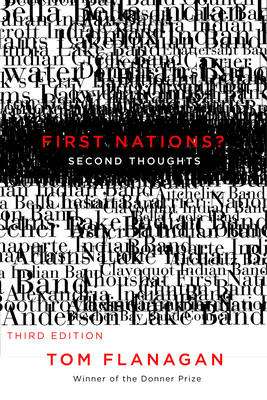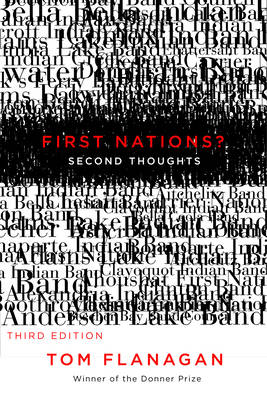
- Afhalen na 1 uur in een winkel met voorraad
- Gratis thuislevering in België vanaf € 30
- Ruim aanbod met 7 miljoen producten
- Afhalen na 1 uur in een winkel met voorraad
- Gratis thuislevering in België vanaf € 30
- Ruim aanbod met 7 miljoen producten
Zoeken
Omschrijving
Over the last thirty years Canadian policy on aboriginal issues has come to be dominated by an ideology that sees aboriginal peoples as "nations" entitled to specific rights. Indians and Inuit now enjoy legal privileges that include the inherent right to self-government, collective property rights, immunity from taxation, hunting and fishing rights without legal limits, and free housing, education, and medical care. Underpinning these privileges is what Tom Flanagan describes as "aboriginal orthodoxy" - the belief that prior residence in North America is an entitlement to special treatment. Flanagan shows that this orthodoxy enriches a small elite of activists, politicians, administrators, and well-connected entrepreneurs, while bringing further misery to the very people it is supposed to help. Controversial and thought-provoking, First Nations? Second Thoughts dissects the prevailing ideology that determines public policy towards Canada's aboriginal peoples. Flanagan analyzes the developments of the last ten years, showing how a conflict of visions has led to a stalemate in aboriginal policy-making. He concludes that aboriginal success will be achieved not as the result of public policy changes in government but through the actions of the people themselves.
Specificaties
Betrokkenen
- Auteur(s):
- Uitgeverij:
Inhoud
- Aantal bladzijden:
- 302
- Taal:
- Engels
Eigenschappen
- Productcode (EAN):
- 9780773558533
- Verschijningsdatum:
- 17/10/2019
- Uitvoering:
- Paperback
- Formaat:
- Trade paperback (VS)
- Afmetingen:
- 152 mm x 226 mm
- Gewicht:
- 458 g

Alleen bij Standaard Boekhandel
+ 110 punten op je klantenkaart van Standaard Boekhandel
Beoordelingen
We publiceren alleen reviews die voldoen aan de voorwaarden voor reviews. Bekijk onze voorwaarden voor reviews.











